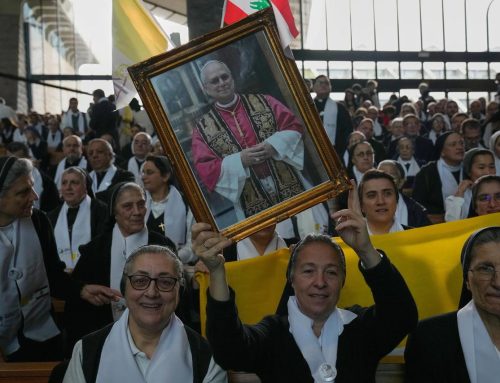.jpg)
A friendship is born very quickly between the Pope Francis and King Abdullah of Jordan, fascinated by the humility and simplicity of the successor of Peter. On August 29, 2013, the king was probably one of the first sovereigns to visit the Pope. While many do not have this privilege, a second meeting was held at tea time Monday, April 7, 2014.
It is uncommon that a head of state is received twice, several months apart, by the head of the Catholic Church, especially a Muslim king who protects in his country a minority of Christians (3% of the population). But between these two meetings, the announcement of the Pope’s pilgrimage in Jordan and the Holy Land was made. The Pontiff will be received in Amman on May 24 and will celebrate Mass on the banks of the Jordan, on the Jordanian side. The leader of the Hashemite Kingdom shared with Pope Francis the eagerness of the Jordanian people to meet him. According to the director of Caritas Jordan, who spoke with L’Osservatore Romano, Christians and even other Jordanians expect words of comfort, and words of support. The country is burdened with refugees: more than 500,000 from Syria, 500,000 Iraqis, 900,000 Egyptian and about 2.5 million Palestinians. This presents great difficulties, economically, socially and psychologically. Despite the presence of many NGOs and humanitarian aid from several countries, the strong presence of refugees threatens the political balance of the Kingdom and the hope of peoples to live in peace. “Among the refugees who have experienced the horror, many no longer believe in God. Jordan is not at war, but everything around it has collapsed and the population is at its limit.”
Silencing the fundamentalists
The unique combination of two official visits has to do, more than likely, with the special position held by the Kingdom of Jordan in the alliance of nations in the Middle East. It is not unrealistic to say that this country is stuck in the heart of a powder-keg and that, given its geographical position, it should support the surrounding countries. In this context, the King does not try to settle all problems with the wave of a magic wand. But he wants to resolve with the Pope some mutual concerns. In this case, to establish a common front against religious fundamentalism whose menacing shadow hangs over the region. The Petra Agency reports that the purposes of the King are to affirm that “Jordan works with all parties to establish a dialogue of communication and understanding between people of different forms of belief in God, and to reject all manifestations of extremism, narrow-mindedness and intellectual and religious intolerance.”
For Bishop Lahham, Patriarchal Vicar for Jordan, this second visit to the Vatican is a “good sign.” It reflects “the unique esteem that King Abdullah has for Pope Francis.” The latter did not fail to thank the ruler of the Hashemite kingdom for his presence, and his commitment to peace and religious Christians. He also expressed his impatience to get to Amman. King Abdullah II went to Rome to seek a pastor. Their common struggle must bear fruit. It is the hope aroused by the Pope’s visit, and the hope that is the basis of their strong friendship.
By: Pierre Loup de Raucourt- LPJ





